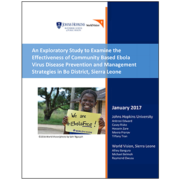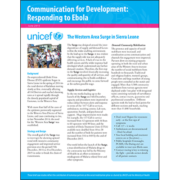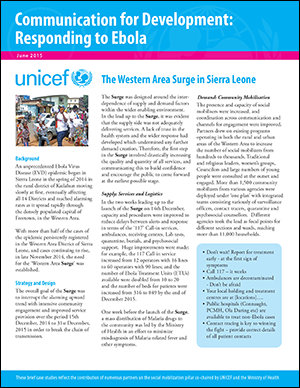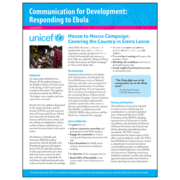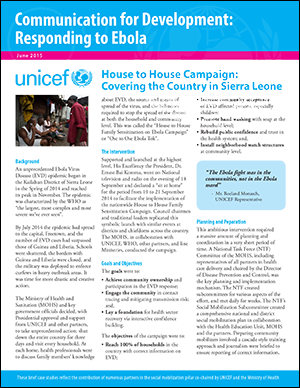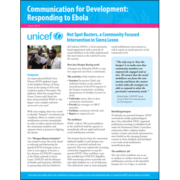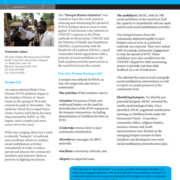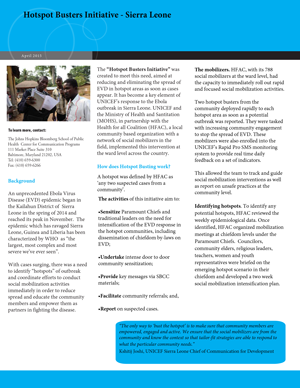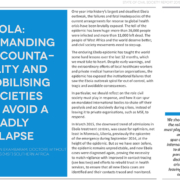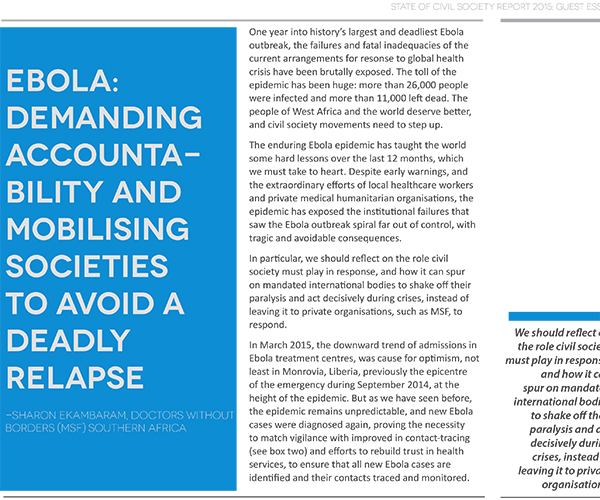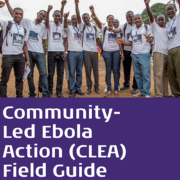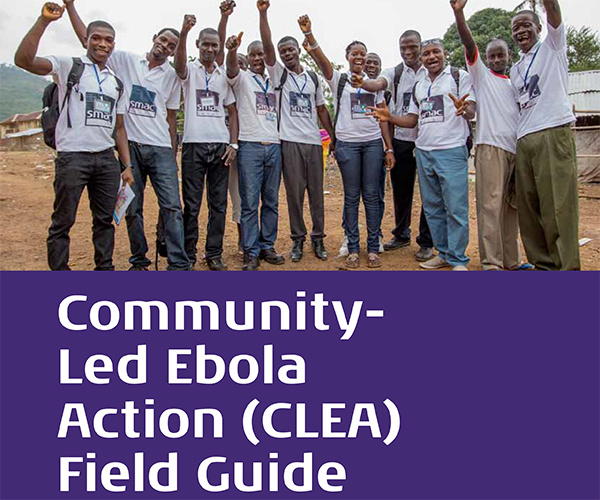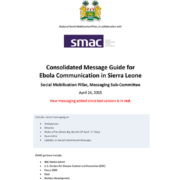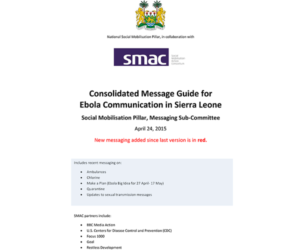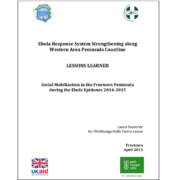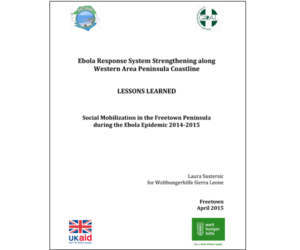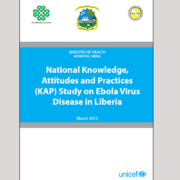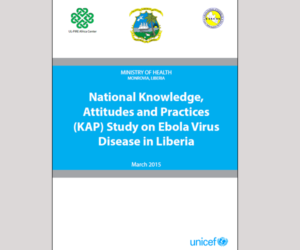An Exploratory Study to Examine the Effectiveness of Community Based Ebola Virus Disease Prevention and Management Strategies in Bo District, Sierra Leone
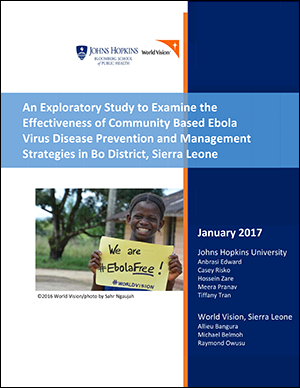 During the Ebola crisis, World Vision Sierra Leone contributed to helping change the beliefs about Sierra Leone’s health system.
During the Ebola crisis, World Vision Sierra Leone contributed to helping change the beliefs about Sierra Leone’s health system.
This study aimed to determine the effectiveness of World Vision’s community‐based intervention strategies implemented on EVD knowledge, preventive and treatment care‐seeking practices of community members. The study also explores differences between households containing both children sponsored by World Vision and a documented case of Ebola, and those without.

